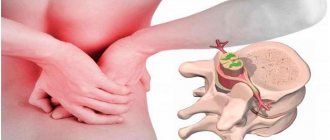Discomfort due to gas upsets every baby to some degree, and this affects breastfeeding and bottle feeding. Contrary to the belief that gas pain is common and can affect babies at any age, it is especially common in newborns and small children between one and four months. In addition, some infants are more affected than others due to congenital and environmental factors.
Gas is simply air in a baby's tummy. The baby may swallow a lot of air along with milk during feeding. He may also swallow air when he cries and even when he breathes.
Gas in a newborn is a common symptom of intestinal distress, but is rarely a sign of a serious problem.
When a tummy upset strikes a child, a parent's first instinct is to find a safe and natural solution. But children obviously cannot tell us about the location and nature of their problem. Therefore, knowing the signs of intestinal gas and monitoring the infant are essential to selecting an effective remedy.
What are the signs and symptoms of baby gas?
If you do not have the time or opportunity to read the entire article, watch the video on this topic:
Belching
Burping is a natural way of expelling gas accumulated in the stomach, and parents should encourage the child to burp during and immediately after meals. However, if your baby hiccups and burps excessively, this may indicate that too much air is being swallowed during feeding.
Regurgitation
Spitting up is common in babies and can be normal. Most babies burp during or shortly after feeding, and this is often accompanied by burping in the baby.
Sometimes this can be due to the type of formula, ingredients in breast milk, feeding too much or too quickly.
Bloating
The gas is mobile and, when accumulated in the intestines, acts as a plug, causing the flow of gastric juices to slow down or stop. A bloated stomach may be a sign that gas is entering the intestines and accumulating, putting pressure on the intestinal walls.
The pressure created thus causes bloating in the abdomen, leading to pain and discomfort. A child's immature digestive system may be unable to cope effectively, and some children may experience painful cramping.
Flatulence
It is normal for babies to pass gas about 15 to 20 times a day. Air can enter the digestive system from several sources, including normal digestion of nutrients from milk or formula, as well as ingestion of air during feeding and crying.
However, excessive gas in newborns may indicate incomplete digestion of food due to very immature digestive processes.
Bad bacteria and viruses can also cause excessive gas, flatulence and even diarrhea. These infections may require medical attention.
Excessive moodiness
Crying is a baby's way of telling you something. Thus, crying occurs frequently and for many reasons, such as hunger, discomfort, loneliness, pain, fatigue or gas.
Parents tend to describe the cry when using gas as sharper and sharper, as if the child is in pain.
In fact, with intestinal gas, you may notice that the child’s face turns red, his fists are clenched, his knees are pulled up to his chest or tense, and the baby makes grunting sounds.
If your baby cries three or more hours a day and at least three times a week, he may have colic.
Anxiety or insomnia
Any form of discomfort will make it more difficult for the baby to fall asleep.
First Aid Medicines: 4 Types of Medicines
The pharmaceutical industry offers many options and analogues of drugs with various spectrums of action for gas and colic in infants.
- Probiotics. A newborn often experiences various dysbiotic disorders - a qualitative and quantitative lack of beneficial bacteria of the intestinal flora. To normalize it, the doctor may prescribe probiotics - a group of lactic bacteria. It is not recommended to use these drugs on your own; you should definitely consult a pediatrician. Only after the results of a stool analysis can we talk about identifying the cause of dysbiosis and the need for probiotic therapy.
- Enzymes. These drugs will help replenish those active substances that are missing during the digestion process. Most often, newborns have problems digesting the carbohydrate in breast milk - lactose. For lactase deficiency (it can be congenital and transient, that is, temporary), an enzyme called lactase is prescribed. The danger of using enzymes can only be in their frequent and regular use. The baby's pancreas must “learn” to independently produce the necessary active substances.
- Preparations with mild antispasmodic and carminative effects. The main active ingredient is simethicone. It contains dimethylsiloxane polymer and silicon dioxide. Despite such an intimidating name, simethicone is not dangerous, is not absorbed in the intestines, and is not addictive, so it is prescribed from the first days of life. Simethicone leads to the rupture of gas bubbles in the intestines, as well as their elimination. It relieves pain well and quickly if its cause is flatulence. If the reason is weak peristalsis due to the immaturity of the central nervous system, then the doctor may prescribe prokinetics - medications that stimulate intestinal motility.
- Herbal medicines. They include herbs: fennel, chamomile, dill seeds, anise, coriander, cumin and others. Dosage form: granules, oils, drops. You can make your own infusions and decoctions from dry herbs. In this case, it is necessary to observe the brewing conditions and the exact dosage. Herbal medicines stimulate the gastrointestinal tract, promote the production of enzymes, relieve spasms, and improve intestinal motility. Plant materials are safe for newborns; decoctions can be used for a long time for preventive purposes. The only contraindication may be individual hypersensitivity to the components.
Drug treatment can be called conditional. Infant or infantile colic cannot be treated. For acute attacks of pain, you can use a number of drugs that will reduce pain and eliminate increased gas formation in the intestines.
Why does a baby have gas?
Gas is a natural byproduct of the digestion of nutrients in breast milk or formula, and the digestive system usually eliminates it without any discomfort. However, since the gas is mobile, it creates pressure in the opposite direction of gastric flow. When gas enters the intestines, it causes a painful build-up of pressure. contribute to this :
Incorrect feeding technique
Poor latching on the breast or bottle causes too much air to be swallowed while eating.
Cry
Crying may cause your baby to gasp for air, especially if he cries from hunger for a long period before eating. Since crying is both a symptom and a cause of gas, it can create a “vicious cycle” that makes the problem worse.
Immature digestive system
The human digestive system is so complex that it has its own nervous system, the enteric, which controls the transport of intestinal contents in a wave-like motion called peristalsis. A newborn's intestines continue to develop after birth.
He learns to efficiently process food, gas and form stool. Gas may also be present in a newborn due to the immaturity of intestinal microflora, carbohydrate metabolism and hormonal regulation. Gas in a baby can also be a symptom of constipation.
Food sensitivities and allergies
Breast milk contains food ingredients from the mother's diet. Some infants may be sensitive to these elements of the products. One study found a link between a mother's diet and colic symptoms. Maternal consumption of cow's milk, onions, cruciferous vegetables (such as cabbage, broccoli and cauliflower) and chocolate consumption were associated with more frequent symptoms of colic in children.
However, as a rule, there is no reason for a mother to restrict her diet. Especially if it's eating healthy food. If you suspect your baby has a food problem, try keeping a food diary to track symptoms such as baby's gas, vomiting, or fussiness. If you feel your baby is benefiting from dietary restrictions, talk to your doctor.
For a breastfed newborn, introducing hypoallergenic formula feeding may help if the baby reacts to cow's milk protein.
Too much lactose
Breast milk is often divided into fore and hind milk. The foremilk, which is in the ducts closer to the exit, contains more sugar, lactose, and the next one, hind milk, is richer in fat.
Some experts believe that excessive consumption of foremilk results in a relative overload of lactose in the body. This can contribute to excess gas or fussiness in babies. Many lactation experts recommend trying to empty each breast before moving on to the next.
Overfeeding
Overfeeding can cause problems if the baby's stomach cannot handle large amounts of food.
Lactase deficiency
A temporary inability to obtain enough lactase enzyme, important for digesting lactose, has been implicated in some cases of colic or gas, but the link has not been proven.
Introduction of new products
New foods can cause gas in your baby as his intestines learn to process them. Excess foods high in sugar (juices, for example) can also cause your baby to have gas or looser stools.
Microbial imbalance
Our digestion is aided by literally trillions of beneficial bacteria (probiotics) that work with our digestive enzymes to efficiently break down food and nutrients.
Emerging evidence suggests that some healthy bacteria, such as Lactobacillus reuteri, may play a role in reducing gas.
Yogurts are also an excellent source of probiotics.
Several studies have shown that administering oral probiotics or probiotic products can help children with gas if taken over a period of several weeks. It is interesting to note that a breastfed baby experiences less gas, and this may be due to the presence of probiotics in breast milk.
Gastric ulcers occur less frequently in breastfed newborns than in bottle-fed infants. The baby can control the flow of milk at the breast; he suckles at a slower pace, swallowing less air with milk. However, even a breastfed baby needs to burp after every feeding.
Diet of a nursing mother
Products that cause gas formation in infants must be excluded from the diet from the first days of breastfeeding. These include:
- gas-forming vegetables and fruits (onions, garlic, cucumbers, cabbage, eggplants, radishes, legumes, melons, raisins, grapes, pears, apples);
- carbonated drinks (this includes sparkling water);
- whole cow's milk (fermented milk products are not excluded from the diet);
- nuts (especially peanuts);
- mushrooms;
- eggs;
- black bread;
- baking;
- sweets with refined carbohydrates (sugar provokes strong fermentation in the intestines).
It is necessary to introduce new foods into the diet gradually, without mixing them. You can keep a diary of a nursing mother. This will help monitor the baby's reactions after feeding. You should also take into account the individual characteristics of the child’s body. Children may react differently to different foods.
When a newborn has gas, what should parents do?
Sometimes attacks of gas formation in a baby are inevitable. This condition of the child can cause concern among parents. But there are several methods that often help newborns from gas.
Massage
Many parents prefer this non-invasive and relaxing technique for getting rid of gas.
Massage can be applied approximately 30 minutes after feeding or when symptoms appear:
- Step 1: Place your baby on his back. You can start by moving your legs in a few circles, similar to how a baby rides a bicycle. This will help the baby release gases;
- Step 2: Massage your baby's belly.
Make gentle stroking circular movements in a clockwise direction. Your touch will help soothe the baby and move gas along the intestines. The intestines “work” clockwise, so this is the best direction for massaging movements. Don't press too hard. This should not cause pain to the child; - Step 3: Place baby face down, stomach on lap. Gently move your legs to massage your belly. This slight pressure will help move the gas. You can also gently pat the back.
Infant massage can relieve your baby's tummy troubles and it won't take much time.
Use of medications
There are three types of antigas medications, and each works differently:
- Simethicone .
Simethicone is a drug that is marketed as a gas reliever. The medicine binds the gas bubbles together, which, in theory, makes it easier for them to escape. Simethicone preparations typically contain synthetic ingredients such as artificial colors and flavors, as well as emulsifiers and fillers. Simethicone was not particularly effective in several studies; - homeopathic remedies . Homeopathic medicines contain natural active ingredients that provide safety for newborns and provide effective relief. Unlike simethicone, homeopathic remedies do not require constant dosing;
- probiotics. New research suggests that supplementing with an infant probiotic will alleviate some infant gastrointestinal problems when given over a period of several weeks.
If your baby is introduced to complementary foods, give him some yogurt. It will fill your baby's intestines with various strains of beneficial intestinal bacteria.
Treatment
Treatment will largely depend on the condition of the baby and the cause of flatulence. Medicines are usually given when other methods fail. What are the ways to reduce bloating?
Correction of digestion without medication
First, we need to figure out whether we are dealing with a disease or whether this is a condition common in infancy. Therefore, before you sound the alarm, answer the following questions:
- Does your child have diarrhea, constipation, or excessive spitting up?
- Does pain appear regardless of feeding, or is it somehow related to food intake?
- Is your body temperature elevated?
- Are there any changes in skin color?
If you answered no to all the questions, you can try to cope with flatulence at home using traditional methods, namely:
We recommend reading: Hard tummy in a newborn
- During attacks, apply a warm diaper, heating pad or mother's hand to the baby's tummy, take a warm bath with chamomile or lavender infusions.
- Massage the tummy in the navel area clockwise. This improves peristalsis and release of gases.
- To prevent air from entering the stomach, choose the correct feeding position. If your baby is nursing greedily, try shortening the interval between feedings.
- If the baby is bottle-fed, do not change the formula unnecessarily. Children tolerate such changes very poorly. Make sure that the nipple on the bottle is appropriate for your baby's age, that it does not leak air, and that the flow of formula is not too fast.
- Adjust your own diet. To avoid fermentation in the stomach of a baby, do not eat fresh or sauerkraut, tomatoes, raw apples, pears for the first time, do not drink kvass and carbonated drinks.
- Before feeding, place your baby on his tummy. This not only enhances intestinal motility, but also strengthens the back muscles.
- Do gymnastic exercises, such as leg raises and leg extensions, and bicycle pedaling. Important conditions for exercise: the baby must be in a good mood; exercises should not be done immediately after eating.
- After feeding, carry the baby in a column until all the excess air has escaped.
- If the bloating is too painful, help your baby by inserting a gas tube into the anus. This mechanically promotes the release of accumulated gases.
Babies love to lie on their stomachs, especially if they get a massage at this time.
Medication correction
Pharmaceutical companies have released a lot of drugs that help get rid of colic and bloating. And although there is no universal cure, through trial and error you can choose for yourself the remedy that will be effective in your case.
Preparations based on fennel
This group includes the well-known dill water, which can be bought at a pharmacy, or can be prepared at home (a teaspoon of dill is poured into a glass of boiling water and left for about an hour; give a teaspoon after each feeding). There are also modern products based on fennel in the form of powders, emulsions and granulated teas. These include Plantex, Baby Calm, Bebinos.
Simethicone
The product, although of chemical origin, does not have any negative effects on the body. But simethicone reliably captures gases and speeds up their release. Prominent representatives: Espumisan, Infacol, Sab Simplex. Remember that if the solution is an emulsion, the bottle must be shaken thoroughly before each use.
Espumisan suspension is absolutely safe for use by newborns
Probiotics
The action of probiotic preparations is aimed at restoring the balance of intestinal microflora, especially if the child or his nursing mother had previously taken an antibiotic. Infants are prescribed drugs such as Linex, Bifiform baby, BioGaia. If the medicine is available in capsule form, then for use in infants the contents are poured into a spoon and given previously diluted with water.
As you can see, no child is immune from colic and bloating. In most cases, treatment is carried out at home, after preliminary consultation with a pediatrician. We wish you to successfully survive this period and help your child through this.
How else can you help a child with gas traffic?
Other ways to help relieve discomfort.
Swaddling
Many babies calm down when they are wrapped tightly in a blanket. Some pediatricians believe that swaddling mimics the sensations of newborns in the womb.
Many parents do not approve of this method. Most pediatricians have a negative attitude towards swaddling. Parents must ultimately weigh the risks and benefits.
Try the movement
The movement calms the child, helps to relax, and also release gas.
- baby rocking. Hold the baby in your arms and rock back and forth;
- go for a short walk around the block. A change of scenery and soft background noise will help soothe your child, allowing him to fall asleep. Also, when moving and gently bouncing the stroller, the gases pass faster.
Pacifiers
Some babies calm down when sucking on a pacifier, but vigorous suction on the pacifier may encourage excess air to be swallowed.
Make sure your baby is not hungry or asking for anything else when using the pacifier.
Give the child a bath
A warm bath with drops of chamomile or lavender oil will help your child relax and calm down.
When is medical help needed?
Call an ambulance if you notice signs of a more serious problem than gas in your baby. These manifestations usually indicate that the child is sick and needs professional help.
These symptoms include:
- fever;
- a swollen, hard, or tender belly in a baby;
- stool with blood or mucus;
- vomit;
- diarrhea;
- loss of appetite;
- pale skin;
- inability to suck;
- screaming that sounds different than normal or constant;
- difficulty breathing or changes in breathing rate;
- drowsiness;
- the child becomes more capricious when touched.
Symptoms in preschool children
In a 2-year-old child suffering from bloating, the following reasons come to the fore:
- consumption of large amounts of easily digestible carbohydrates: grapes, chocolate, baked goods, etc.;
- sedentary lifestyle;
- overweight;
- fermentopathy (insufficient production of lactase, which breaks down milk sugar);
- disturbance of intestinal microflora.
Similar reasons cause belching in a 3-year-old child, in addition to other manifestations of increased gas formation. But at this age, flatulence develops much less frequently than in children under one year old.
In a 4-year-old child, signs of flatulence appear from the first days of attending kindergarten. This is due to changes in diet, due to which the intestines undergo adaptation processes. A child’s hard belly, belching of air, and frequent passing of gases lead to stress, which in turn increases the process of gas formation.
In such cases, a mandatory consultation with a doctor is necessary to establish the causes of this condition and know how to deal with flatulence and bloating.
In a 6-year-old child, the causes and clinical manifestations differ little from those in the previous age category. May play a role:
- expansion of the diet, when more sweets and soda, raw vegetables are eaten;
- incorrect combination of products;
- chewing gum use;
- Great psychological stress and stress if the child starts attending school.
If a child develops a hard stomach and complains of rumbling, pain, and belching after eating, it is necessary to adjust the diet for gas formation.
Prevention
- Try to quickly calm a capricious child. Many children swallow air when crying.
- Position your baby correctly when feeding. This will reduce the amount of air he swallows. Hold your baby's head above your belly and support it. This will help the child swallow food correctly.
- Allow your baby to burp after each feeding. If your baby is particularly gassy, you may want to interrupt the feeding several times to allow the baby to burp.
- Evaluate your bottle feeding technique.
Hold the bottle high enough to keep the nipple full. If the nipple is only partially filled with milk, the baby will suck in air with the milk.
Listening to a baby suffering from stomach and intestinal pain can be difficult for anyone. But for new parents, it can be especially difficult. However, if your child is suffering, do not despair.
There are many things you can do to give your baby and yourself some relief.










